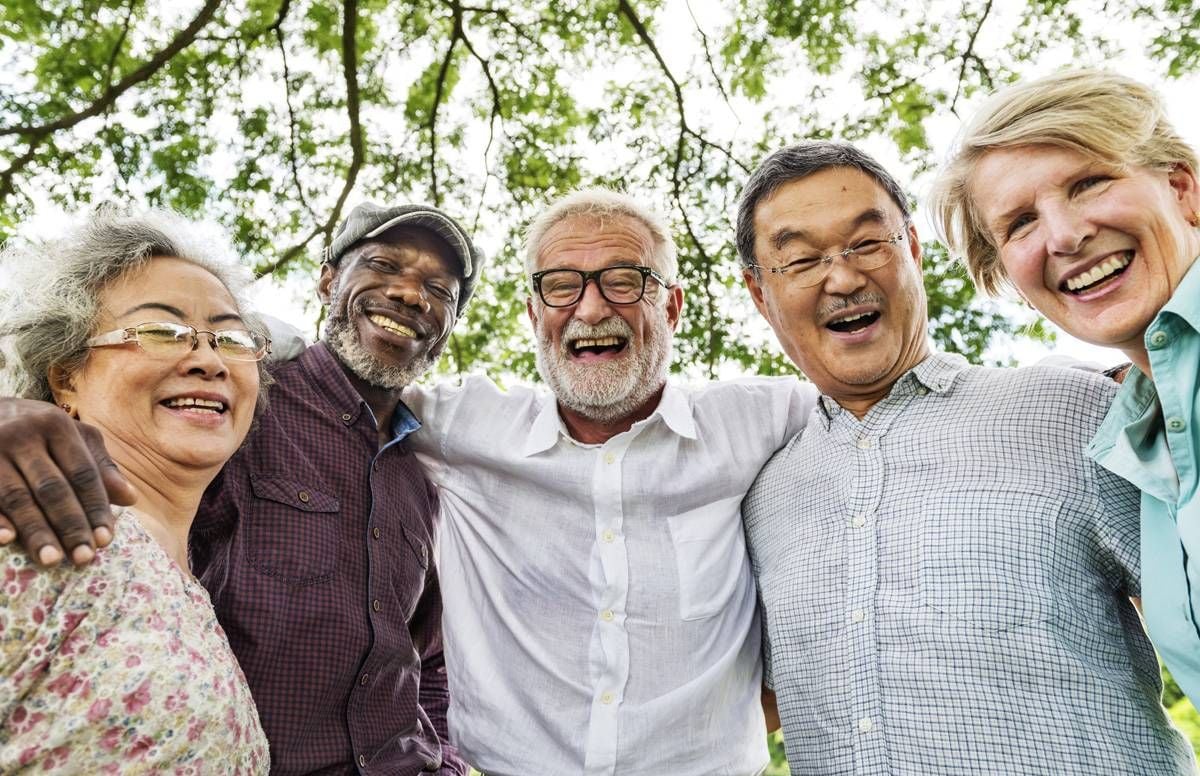OPINION: To Celebrate Older Americans Month, Check Stereotypes on Aging
One way to do it: take the 200-year present quiz
May is Older Americans Month and I think a great way for Americans to celebrate is to check their stereotypes on aging.

If you’d like to do that, you might start by finding your 200-year present. That’s the brilliant idea of Elise Boulding, the late Quaker sociologist. With her shock of white hair and a face creased with deep ridges from a lifetime of smiles and laughter, when Elise spoke, others listened closely for the wisdom of her experience.
Your 200-Year Present
Here’s how the 200-year present works: Picture the oldest person who held you when you were a baby. What year was that person born in? Now picture the youngest person you’re in contact with (even if only by FaceTime or Zoom at the moment.) Assume that child will live to be 90 years or more; write down the year that child might live to and then figure out the total number of years encompassed by these lives. This is your 200-year present.
I’ve done this exercise with many groups, from college students to retirees. People are intrigued that 200 is approximately the number they come up. Even better: They begin to understand that we are each part of a larger chain of generations, part of the aging of our country and our world.
We can’t let the coronavirus spread another virus: stereotypes of aging.
While I may picture my Uncle Willie born at the end of the 19 century in my 200 years, I may well be the starting point for someone else’s 200 years. Welcome to an aging America and a way to adjust the stories we tell ourselves about aging.
To be sure, people 65 and over are at greater risk from COVID-19. And nursing homes, with many older residents who have underlying health conditions, are at the “highest risk” of being affected, accounting for a disproportionate share of COVID-19 deaths.
A Potentially Spreading Virus: Stereotypes of Aging
But we can’t let the coronavirus spread another virus: stereotypes of aging that affect both today’s older people and the prospects for aging for all members of society.
Yale University psychologist Becca Levy (a Next Avenue Influencer in Aging) and her colleagues have documented the physical, cognitive and economic costs of negative age stereotypes and ageism. As Levy put it, “a highly impersonal way of identifying individuals, through age stereotypes, can influence them in a highly personal way: through their functioning and health.”
For example, she and her researchers found that those who held negative age stereotypes earlier in life were significantly more likely than those who held positive age stereotypes to experience a cardiovascular event 30 years later in life.
Different Views About Expectations of Aging
Our expectations and images of aging matter.
Research from the Frameworks Institute suggests this could be a good time for Americans to check their stereotypes of aging. The general public sees changes that come with aging as negative, irreversible and not susceptible to intervention. In contrast, experts in the fields of gerontology and geriatrics have a different view. They say that aging is not the same as illness; it comes with challenges and opportunities. And context matters — having friends, family and a supportive network can make all the difference.
Cornell University sociologist Karl Pillemer reminds us that in this time of pandemic we can learn a lot by changing our expectations of aging and older people.
He recently reflected on the advice and lessons learned from older adults who lived through the Great Depression and World War II and, in 60 cases, the influenza pandemic of 1918. Pillemer summarized their suggestions for living well through crisis: take the long view and think of the survival story you will tell once this is over; be generous, remembering we are in this together; don’t worry, take action instead and savor the small, daily pleasures.
During Older Americans Month, think about your own 200-year present. Who were the older people who were sources of love, support and advice as you grew up? And who are you providing that for now?
Savoring those reflections may be the best 200-year present Elise Boulding can give us.

